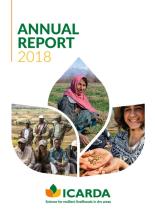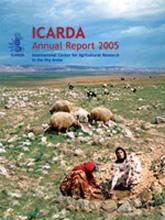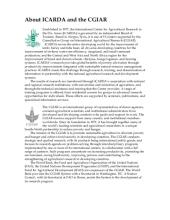/ library resources
Showing items 1 through 9 of 314.Despite their recognized agricultural sustainability benefits, mixed crop-livestock farms have declined in the Northern hemisphere.
Recent forecasts show a need to increase agricultural production globally by 60% from 2005 to 2050, in order to meet a rising demand from a growing population.
Discussions about climate change have repeatedly regarded livestock as responsible for a significant contribution of greenhouse gas emissions.
ICARDA continued to play a critical role in the development, improvement, and dissemination of climate-resilient crop varieties last year.
The year of 2008 marked the beginning of a new phase at ICARDA: the full implementation of the Center's Strategic Plan 2007-2016, and a renewed commitment to addressing the global challenges of food security, poverty alleviation and climate change in the dry areas.
The year 2005 was an important milestone in the efforts of ICARDA and its partners in meeting the global challenges of agriculture in dry areas through the application of science.
Strong partnerships with national agricultural research systems and other stakeholders constitute the backbone of ICARDA’s research agenda.
2016 was the hottest year on record – the third consecutive record-breaking year.
2014 went on record as the hottest year ever measured, a telling sign that climate change is already here. The agriculture sector is predicted to take the heaviest toll, with the hardest hit being smallholder farmers in developing countries, particularly in dry areas.
Paginação
Land Library Search
Through our robust search engine, you can search for any item of the over 73,000 highly curated resources in the Land Library.
If you would like to find an overview of what is possible, feel free to peruse the Search Guide.







